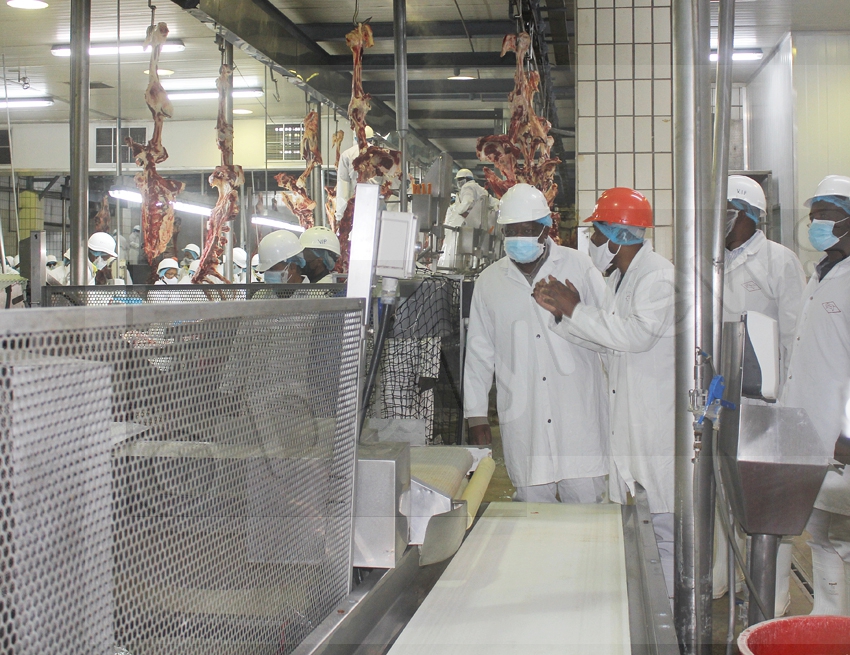Brooks calls for review of park joint venture
24 Nov 2021
A review of the Kgalagadi Transfrontier Park joint venture between Botswana and South Africa is necessary to fully maximise the parks benefits locally.
Debating the State-of-the-Nation Address, Kgalagadi South MP, Mr Sam Brooks said the park did not benefit the local tourism sector as much as it did South Africa.
He said the signing of the memorandum of agreement between Botswana and South Africa in 1997, which marked part of cross-border initiatives currently unfolding in Southern Africa for the development and management of transfrontier parks and transfrontier conservation areas did not benefit the two countries equally.
“With the worldwide growth in the eco-tourism industry, the transfrontier parks offers an opportunity to optimise the abundance of fauna and flora that both countries have to offer to the benefit of local communities,” he said.
The MP, however, complained that although the park was economically beneficial to South African communities living along it, the same could not be said about the Botswana side as a lot economic activities were centered on the South African side of the park which was more resourced.
He said there was urgent need for government to carry out construction and renovation of guards houses, visitor centres and other facilities as well as paths and viewpoints in order to lure tourists to the Botswana side of the park.
He said good infrastructure and telecommunication facilities as well as trained human resources were necessary for the development of sustainable tourism and conservation in the transfrontier parks.
On other issues, Mr Brooks applauded the proposed Khuis nature reserve project, saying it had the potential to turn the village into a tourism destination and create jobs for locals. He also said he was hopeful that the 529 hectares of land earmarked for the project would be granted by the land board.
Mr Brooks also pleaded for the establishment of the Kgalagadi heritage train that would promote tourism.
He also called for the upgrading of the Tsabong Primary Hospital, saying it was clear that it did not meet the demand of the growing population.
The Kgalagadi South MP applauded President Dr Mokgweetsi Masisi for the recent announcement to award Bray residents some farm land.
However, he criticised the youth internship programme, saying it exploited graduates as employers were reluctant to pay interns deserving remuneration.
Also contributing to the debate, Francistown East MP, Mr Buti Billy said government should appreciate the importance of cultivating a strong local business sector in order to meet national development objectives of rapid economic growth, economic independence as well as sustainable development.
Mr Billy said he was optimistic that Francistown would benefit from the special economic zoning which would promote industrialisation by accelerating economic transformation from the primary sector to advanced manufacturing and services in order to achieve economic diversification.
He said Francistown had through the special economic zoning been earmarked for mining services, transport and logistics as well as agro-processing and solar energy. He added that a lot of projects were on the pipeline and would be implemented in the next financial year.
“Shumba Energy is to embark on a P250 million solar project which will generate over 150 jobs while the Ranzol Group of Companies will also embark in a P2 billion worth agricultural project which will employ 1 500 people,” he said.
With regard to education in his constituency, Mr Billy decried the shortage of classrooms at Donga Junior Secondary School. He called for the provision of porter cabins, further stating that there was overcrowding at Francistown Secondary School and Mater Spei College. He thus pleaded for the construction of a new senior secondary school.
He commended the smooth rollout of the COVID-19 vaccination campaign in greater Francistown, saying over 73 000 people had been fully vaccinated.
Mr Billy, who is also Assistant Minister of Youth Empowerment, Sport and Culture Development, highlighted the need to support the creative industry.
He said studies had shown that 5.46 per cent of the GDP was contributed by creative industry.
He said there was need to support local content in both state-owned and private radio stations.
“Local content has to be protected and promoted as it has the potential to create employment for creatives’ who are mostly youth,” he said. ENDS
Source : BOPA
Author : Thato Mosinyi
Location : Parliament
Event : Virtual Parliament
Date : 24 Nov 2021



